Gas for Climate was initiated in 2017 to analyse and create awareness about the role of renewable and low carbon gas in the future energy system in full compliance with the Paris Agreement target to limit global temperature increase to well below 2 degrees Celsius. To this end, the entire economy has to become (net) zero carbon by mid-century.
The Gas for Climate group consists of eleven leading European gas transport companies (DESFA, Enagás, Energinet, Fluxys Belgium, Gasunie, GRTgaz, Nordion, ONTRAS, OGE, Snam, and Teréga) and three renewable gas industry associations (European Biogas Association, Consorzio Italiano Biogas and German Biogas Association).
The CEOs of the twelve members are: Piero Gattoni (Consorzio Italiano Biogas), Harm Grobrügge (European Biogas Association), Horst Seide (German Biogas Association), Maria Rita Galli (DESFA), Marcelino Oreja Arburúa (Enagás), Thomas Egebo (Energinet), Pascal De Buck (Fluxys), Han Fennema (Gasunie), Thierry Trouvé (GRTgaz), Ralph Bahke (ONTRAS), Jörg Bergmann (OGE), Stefano Venier (Snam), Hans Kreisel (Nordion Energi), Dominique Mockly (Teréga).
In a series of reports over the past few years, the Gas for Climate consortium showed that renewable and low-carbon gases have an important role to play in the EU energy system and that existing gas infrastructure and knowledge can support the transition to an energy system with net-zero CO₂ emissions at the lowest societal cost. The Gas for Climate vision and pathways towards 2050 cover all energy-intensive economic sectors and demonstrate, along with the crucial role of renewable and low-carbon gases, that current policies and trends are not yet sufficient to realise Europe’s climate ambitions for 2030 and 2050 Policy and market actions are required to speed up the transition, and progress of necessary developments must be closely monitored to ensure the transition is achieved at the lowest societal costs.

